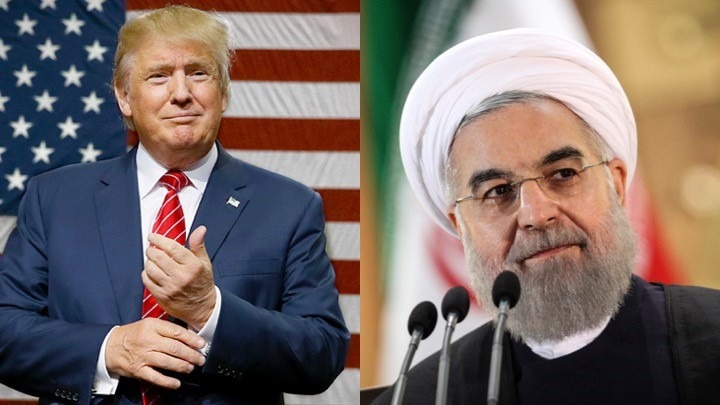
Negotiations Amid Mutual Deterrence
The following day, US Secretary of State Mike Pompeo, talking to Kevin Cirilli of Bloomberg, said he would welcome the chance to address the Iranian people and tell them the “truth” concerning the policies adopted by their leadership. The same day, 25 July, he told Bret Baier of Fox News that the US strategy of maximum pressure on Iran aims at disrupting the creation of wealth for the regime of the Ayatollahs and to push the Iranian leadership to “sit down and negotiate to terms that just make Iran look like a normal nation”.
So, the stage is being set for future negotiations between the United States and Iran. It goes without saying that the American gun pointed at Tehran won’t make things easy. However, the Europeans and other powers, particularly in Asia, would doubtless try to mediate a path that would make it possible for the Iranians to start talking to the Americans without appearing to be surrendering to American conditions as laid out by Pompeo in May 2018, days after the United States announced its withdrawal from the Joint Comprehensive Plan of Action, or Iranian nuclear deal.
In the meantime, the main concern for the United States and its European and Middle Eastern allies and partners is to safeguard the freedom of navigation in the Strait of Hormuz. For this purpose, US Central Command hosted a meeting at its headquarters in Tampa, Florida 19 July to discuss the development of a multinational maritime effort “to increase surveillance of and security in key waterways in the Middle East to ensure freedom of navigation”. “Operation Sentinel”, the name given to this multinational maritime effort, aims according to a released statement to promote maritime stability and ensure safe passage in international waterways in the region. Furthermore, another important objective is to deescalate tensions in international waters in four strategic zones; namely, the Strait of Hormuz, the Arabia Gulf, the Gulf of Oman and the Bab Al-Mandab.
On the other hand, former British foreign secretary Jeremy Hunt proposed last week the formation of a naval force to escort ships and tankers in the Arabian Gulf to ensure safe passage through the Strait of Hormuz. The French, the Germans and the British are coordinating their diplomatic efforts to agree on the formation and rules of engagement pertaining to this proposed force. The French are very careful not to antagonise the Iranians in this regard, and want the force to act as a deterrent to any attacks on foreign ships in the Gulf. They believe that what is important is to keep the Iranians engaged in negotiations with the European Union so as to deescalate the situation in the Gulf and to work with the Iranians with the hope that Tehran, despite its threats, would remain committed to the nuclear deal while trying hard to lessen the economic and financial impact of American sanctions on Iran.
After the arrival of Boris Johnson as British prime minister on Wednesday, 24 July, the Europeans could find him more prone to deescalate with the Iranians. Some observers fear that the new prime minister could be more prone to follow in the footsteps of the White House strategy of maximum pressure on Iran. When he was foreign secretary in Theresa May’s cabinet, before his resignation last year, he tried to talk President Donald Trump into not walking out of the Iranian nuclear deal. Now, and taking into account the difficult Brexit process under his tenure, chances are that he would prefer to take the middle ground between the American and the European positions on Iran. In the difficult months ahead, before Britain exits the European Union by 31 October, he is in no position to lose the support and the goodwill of President Trump.
As long as the United States is not keen on a military confrontation with Iran, the Europeans, including the British, have a good chance of using their diplomatic leverage with Iran to facilitate negotiations between the United States and Iran. One sure way is the successful implementation of the mechanism Intex (Instrument in Support of Trade Exchanges) to avoid American sanctions. Judging from the positions and declarations of American officials and top brass, Washington’s main objective is twofold. First applying maximum pressure on Iran to push the Iranian leadership to agree to negotiate, and second is to safeguard safe passage through international waterways in the Gulf, the Arabian Sea, as well as Bab Al-Mandab in such a way as to deescalate the situation in the Gulf region. In other words, to deter Iran from escalating the face-off with the United States and its Middle Eastern allies and partners.
The Europeans are also interested in deescalating while working to deter Iran from threatening freedom of navigation, as well as to encourage Tehran to remain committed to the nuclear deal. Iran, even though its economy is in shambles, does not hesitate to take small, inoffensive steps to deter the Americans and the Europeans at the same time. The former to not increase its campaign of maximum pressure and the latter to help Iran get around American sanctions. It is a risky three-way deterrence. Its success depends on each side of this triangle calculating its moves carefully. However, the longer this three-sided deterrence remains, the greater the chances of miscalculation, especially from the Americans or Iranians.
Another factor in this equation is Israel. If Iran would gradually disengage from its commitments in the Joint Comprehensive Plan of Action, because of lack of diplomatic progress on contentious questions with the Europeans and the US, Israel could destabilise the deterrence balance in place between the US and Europe, on the one hand, and Iran, on the other. Israel’s strategic aim remains the complete destruction of Iranian nuclear capacities and capabilities. Israel won’t hesitate to go to any length if Iran would someday go full steam ahead in its nuclear programme.

